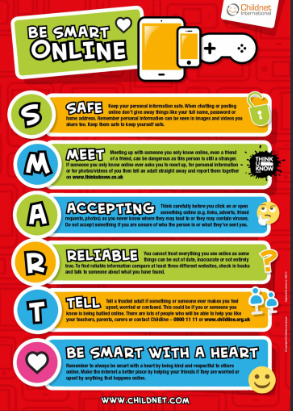Online Safety
Staying safe online and educating children about both the advantages and disadvantages of the online world is of paramount importance to us at Dingle. We work in partnership with parents to ensure that our children are wise when it comes to using technology and can use it responsibly and safely.
Technology is essential in 21st century life for education, business and social interaction. As children move up through the school their access to various types of technology increases and it stands to reason that their exploration and curiosity increases too. The positives of the digital world overwhelmingly outweigh the negatives but children, schools and parents all need to be aware of various online risks.
In simple terms, online safety refers to the act of staying safe online. It is also commonly known as internet safety, e-safety and cyber safety. It encompasses all technological devices which have access to the internet from PCs and laptops to smartphones and tablets.
Operating within an online space is something most of us simply do subconsciously, but have you ever stopped to consider the potential dangers which exist on the web, especially for our children?
The recent Ofcom 'Children and Parents: media use and attitudes report 2025 found that children are more engaged online than they’ve ever been. Ownership of smart devices is increasing and the range of content they are viewing is expanding.
In an ever-changing world, ensuring pupils’ safety online has never been more important. It’s an all-encompassing duty and something every teacher and parent must be vigilant of.
As a school we constantly reflect and update our online safety provision, we seek advice from a variety of professionals to ensure that we are always doing all we can to keep our children and families safe.
We ask that parents:
- Endorse (by signature) and adhere to the parent acceptable user agreements
- Promote online safety practice by following the guidelines as stated in our Dingle Community Online Safety Policy.
- Only take images of their own children when visiting school to celebrate achievements.
- Role model acceptable use with children and teach good habits by limiting screen time and setting parental restrictions and passwords.
- Set clear expectations and positive rules together. Have family rules about what is acceptable online and follow PEGI ratings, use age related apps only.
- Establish good habits early on through conversations about staying safe online. Sharing the SMART rules.

